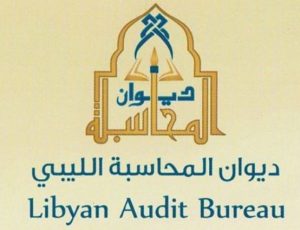By Sami Zaptia.

London, 23 June 2020:
During his report last Tuesday (16 June) to the breakaway Libyan parliament (the House of Representatives – HoR) in Tripoli, Audit Bureau head Khaled Shakshak said that the MSO has been a disaster for Libya’s health sector and that its corruption is worse than that in the much more high profile corruption in subsidised fuel.
Medicines and medical equipment imported by the MSO are subsidised and given to patients free. Subsidised medicines have been leaking into the private sector to be sold at market prices and smuggled to neighbouring
countries. The MSO’s annual budget over the years, if not decades, has consistently been between US$ 307-461 million (LD 400 – 600 million).
Shakshak’s report to the breakaway parliament is a rare example of transparency and accountability in post Qaddafi Libya despite two purported elections. This reflects the country’s political split. The Tripoli parliament is made up of mainly western based parliamentarians that have broken away from the internationally recognized parliament based in the eastern city of Tobruk.
The breakaway came as a result of Khalifa Hafter launching a military attack in April 2019 in an attempt to take control of Tripoli. The attack lasted 14 months before Hafter’s forces were pushed back in June to the central Libyan city of Sirte.
In his report, Shakshak said that the Ministry of Health had failed since 2011 to organize a public tender for the supply of medical supplies. He says it prefers to operate through directly awarded contracts rather than public tenders. The direct award of contracts leads to corruption, he added.
These contract s are also wrongly awarded to local companies when they are supposed to be awarded to foreign manufacturing companies, he added.
Shakshak said the Health Ministry often imports cheaper generic medicines when it should be able to afford importing original brands. He added that often generic medicines are passed off as if they were original brands.
He said that the Health Ministry has no system or mechanism for ascertaining Libya’s overall medicine needs. It has also failed to put in place a stock control system that can monitor and account for all imported products from the point of import to the point of use. It has no idea what stocks it has across the country of which products and often products are overstocked and reach their expiry dates in one hospital – whilst some hospitals have shortages and need them.
Shakshak said the Audit Bureau is left in an uncompromising position of having to choose between doing its job and enforcing the law properly. The delays caused by overseeing contracts and cause delays in contracts being implemented and lead to medicine shortages. It is then put up to be the bad guy and accused of being bureaucratic.
He said lots of public money is wasted through the import of medicines by the MSO and that in his view the money wasted by this is worse than that wasted through the smuggling of subsidised fuel.
https://www.libyaherald.com/2020/06/23/audit-bureau-critical-of-mismanagement-and-corruption-in-electricity-sector/
https://www.libyaherald.com/2020/06/17/audit-bureau-refers-its-senior-official-to-public-prosecutors-office-for-suspected-corruption-with-a-state-entity/






